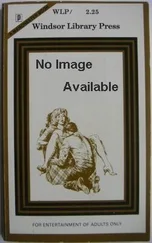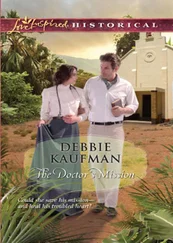Very truely
Lou Martin
* * *
Dear Miss Barrett,
I'm collecting money from the kids in Home Room for a Xmas present to send Alice in the hospital and would like your permission to do this. Would you care to join in? I keep thinking how she used to sit right in front of me. We want to get her one of those great big stuff animals on which we'll all autograph our names to show we didn't forget her. A pander or a kangarroo.
Sincerly
Carole Blanca
Thurs., Dec. 17
Dear Ellen,
It is 3:30 in the morning. I can't sleep; I need to talk to you. I want to tell you what happened this afternoon, exactly what happened.
It was late when he came in; I had waited, it seems, for a long time. I remember arranging and rearranging the papers on my desk, refreshing my lipstick, switching on the lights against the winter darkness. I remember the sounds of traffic and the drilling on the street below, and the way he suddenly stood in the doorway.
He closed the door softly behind him and leaned against it, waiting. I remember thinking how nice, he had spruced himself up for our interview: the toothpick was gone; he had taken the trouble to brush his hair.
I arose. I smiled. I was glad to see him, I said. I had been wanting to see him all term. He said he knew that; well, I had my wish, here he was.
Ignoring his insolence, aware of his resentment of authority, I stepped out from behind my desk and —to bridge the distance between us—I sat down, with my Delaney Book, in a student's chair, motioning for him to sit next to me. I knew precisely what I would discuss with him: reasons for staying in school, possibility of college, making up failing marks, attendance, attitudes. I was ready to point out the discrepancy between his capacity and achievement. I was prepared to understand his problems.
He swaggered towards me, but he did not sit down.
He stood above me, leather jacket unzipped, rocking slightly on his heels, looking down at me, but not looking at my face.
I sat holding my Delaney Book like a shield against my breast, with all those cardboard names on it, last first, printed in ink. He knew what I was after, he said. He recalled my every act of kindness to him, from the first day, when I had covered for him with McHabe. And about the wallet, he said, and when they found the knife on him, and the midterms, and all that talk, talk, and asking him all the time to see me alone. Well, we were alone now.
The drilling on the street must have stopped for a moment; I remember it had begun again, more loud and insistent. I felt my heart beating against the hard, wine-red cover of the Delaney Book. He must try to understand, I said. He must believe that I wanted only—I wanted—
He wasn't listening. He was looming above me, the years between us swiftly reversed, while I sat, an unsure school girl, reciting a tentative lesson. My words never reached him; I could almost hear them drop, one by one, like so many pebbles against a closed window.
You know how you move under water, heavy and graceful? By this time I was standing. I had somehow got up. I remember how carefully I had placed the Delaney Book on the arm-desk of the chair, balancing it so that it should not spill out all those name cards. Disarmed now, empty-handed, I was standing before him. I became aware of the deserted building enclosing us, the empty room, the empty chairs, silent and abandoned as grave-stones; of scraps of paper, valueless now, scattered on the floor; of books leaning, top-heavy with words, on the splintered shelf; of papers on my desk, bulging with words. Slowly I began to step back; slowly he moved towards me, relentless as a shadow.
After a while I felt the wall at my back; there was no further place to go. I heard my words running down like a defective phonograph record, until there was silence. The drilling on the street had stopped again. He was very close. I looked at him, and with a mild shock of recognition, I saw him, as if I had known him only through photographs before, and now saw him in person. Yes, of course.
Someplace a car honked. I think he made a move towards me. Maybe not. I looked at him, and there were no words left with which to ward off feeling.
I reached out blindly. I touched his face. There were no words for the terrible tenderness. I wanted to comfort him, as if he were a child, for everything that had been done to him. I wanted to say, like Persephone in hell: My dear, my dear—It is not so dreadful here. I wanted to tell him, I wanted him to know. There were no words for this, only my hands on his face.
I don't know how long we stood, motionless, enfolded in silence. One moment his face was hard against my hands, the next, it seemed to shatter at my touch. He looked as if he were about to wrench himself away, but he didn't. Fists clenched, he watched me like a boxer poised to spring.
His eyes read me like Braille. This was the moment he had been testing me for. What was he asking me to do? Undo?
He had come for a purpose. He thought (he made himself think) it was my purpose too. It was the only way he knew to human closeness. It was also the way to diminish me, to punish.
His life outside this room was alien to me. I could not imagine or even guess it. Yet I knew him. His face told me all. The silent struggle, the clash of feeling on feeling: contempt and longing, helplessness and rage. All that he knew of good. The need to cling and to repel, to kneel and to defile.
He waited for a sign.
What could I say to show him that to survive, love was as strong as hate, and could be trusted? His world had taught him well, long before me.
Only my touch could speak. I care, it said, I do care.
His eyes grew hard. His lips moved.
"Damn you to hell"—he turned and bolted out of the room. The door opened and closed behind him, and there was the drilling on the street, loud now, and the desk and the papers and time. For some reason, I looked at my watch.
Was he crying?
If he was, he will never forgive me.
But it was I who cried. I sat down at my desk; I put my head on my arms on the desk, and I cried.
Why?
The question and answer period will come later; multiple choice, True or False, my own "probing question"; and the explanations, the interpretations, the distortions I will inevitably make.
For already, hours later, I think that what I felt for Ferone, and what I am feeling now, and what I am putting down on this paper, and what you will see when you read it—are all quite different.
"What is truth?" said jesting Pilate, and would not stay for an answer. But jesting Sylvia will stay and jest the truth away. I had used my sense of humor; I had called it proportion, perspective. But perspective is distance. And distance, for all my apparent involvement, is what I had kept between myself and my students. Like Paul's lampoons, like Lou's ha-ha's, it insulated me; it kept me safe from feeling.
I will probably, in my very next letter, or very next paragraph—see once again "the funny sides"; I may allow memory to turn flippant. But for a moment, or hour, or whatever measure of time it takes to grow, we reached each other, Ferone and I, person to person.
For love is growth. It is the ultimate commitment. It imposes obligations; it risks pain. Love is what I wanted from all, from A (Allen) to W (Wolzow) in my Delaney Book; but I had never really loved back. Oh, love me, love me back! they all cried—Alice and Vivian, all of them. And maybe now I can.
Ferone taught me. Our roles became reversed. He had reached me ; I was the one who needed him , to make me feel.
What to do with it? I had once seen a girl's memo book on the Lost & Found shelf in the office, and on the cover—a warning in crayon: Do Not Touch!!! Or Look!!! Personal! Private! Penalty! The penalty for touching is too great. The burden of love for all the Ferones waiting for me in the classroom is not to be borne. Better by far to stand at a lectern and read my neat notes at Willowdale.
Читать дальше










